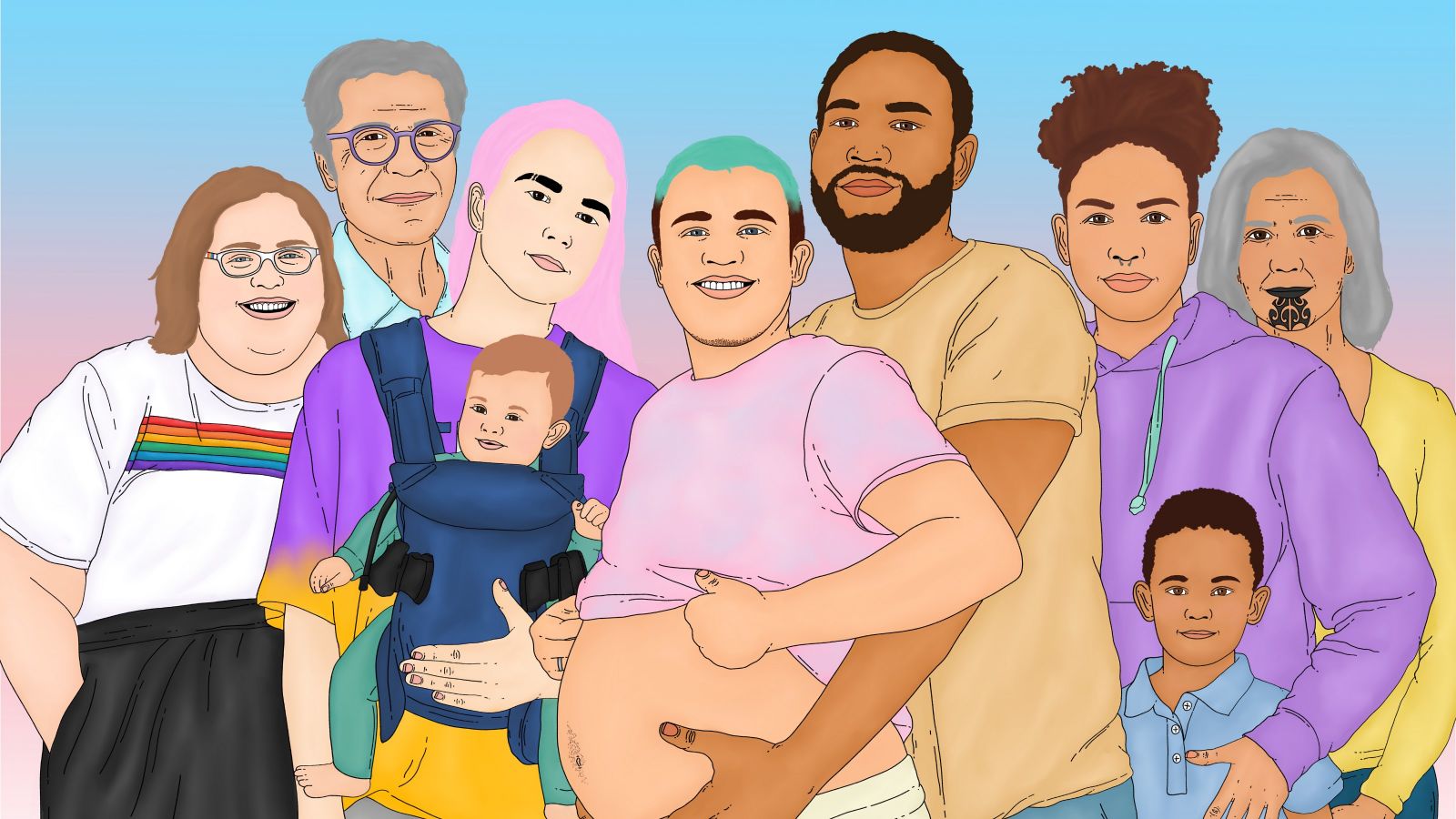
“Many aspects of the way services are designed and delivered, many interactions that happen, forms that need to be completed—so much of it is embedded with the implicit assumption that the people engaging with the system are cisgender and heterosexual.”
Dr Parker, who is non-binary themself, interviewed 20 families from around the country about their experience having children in the New Zealand health system. Dr Parker says the consistent theme throughout each interview was a sense of fighting to be heard.
“They’re caught in this terrible paradox where they feel a need to fight to be recognised and affirmed, but they’re already going through something that, for anyone, is an enormous emotional and mental labour. It is exhausting for them.
“One participant described the experience as ‘death by a thousand cuts’.”
One example Dr Parker says sits with them is that of a young person who even after advocating for their correct name to be used, was repeatedly ignored.
“They’d had a very difficult conversation with the person at the front counter who assured them it would be used, and then just a few minutes later that same receptionist stood up and used the wrong name to call them in.
“Another person said they felt unsafe in the hands of their surgeon, after their gender was challenged by the surgeon performing their caesarean section on the day of the operation.”
Dr Parker says what whānau are asking for is not a lot. But simple, small changes, could make a big difference.
“The bar is so low. They want opportunities to be invited to share their identities, not to have it assumed. Information and resources that aren’t solely designed for cis women. Childbirth education that is responsive to their family, that doesn’t put the ‘mums’ in one room and the ‘dads’ in another.”
Dr Parker says one of the main areas of concern however, is the lack of tailored support in perinatal care. They say the people they interviewed will tolerate misgendering, heteronormativity, and a level of disrespect, but it’s the aftermath that causes the most distress.
“They’re there to get their baby safely into the world. But after they get through this system, the weight of that hurt and disregard falls onto them. And when rainbow people are already at greater vulnerability for perinatal distress, we cannot have a system that reinforces that dynamic.”
The second stage of Dr Parker’s research has involved surveying and engaging with health staff. They have received nearly 500 reponses examining what the workforce already knows and believes, and what needs to be offered to give them confidence to provide the best, inclusive care.
Dr Parker says they’re confident that the sector, and our communities, are ready for this change.
“It was so validating when this study was funded by the Health Research Council, because this time last year I didn’t think the country was ready to invest in a study like ours. So I think that shows that people in the sector are starting to really think this stuff through a little bit more.”
Dr Parker recently spoke more about their work on PlainFM as part of the 'Gender Justice' series and for the International Confederation of Midwives' 'Pass the Mic' series.
